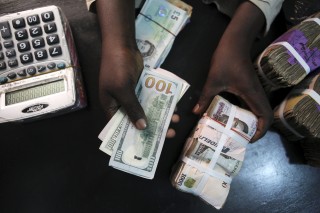The intervention of Nigeria’s central bank in the foreign exchange market has been counterproductive, the manufacturers association has said, citing the preference for imported raw materials in the sector due to forex availability, at the expense of local content.
The Central Bank of Nigeria (CBN) has been an active buyer and seller of currencies since 2017 when it launched the Investors and Exporters (I&E) window – a unique window meant to deepen the forex market, reduce the demand for hard currency and prompt foreign investors to return to the country.
Between January and October 2018, the apex bank injected the sum of $10.97 billion on a weekly basis to defend the Naira against exchange rate fluctuations and boost liquidity in the forex market. In the first half of 2019, a total of $8.29 billion was expended.
The injected funds were provided to authorized dealers in the wholesale sector, businesses in the agriculture and manufacturing sectors, as well as individuals paying tuition and medical bills and Small and Medium-scale businesses.
While the window had attracted over $60 billion to the Nigerian economy as at last December and in the process helping to stabilize the volatility of the Naira against other currencies, according to CBN Governor Godwin Emefiele, its success has also coincided with a downward trend in the use of local raw materials in manufacturing as firms prefer to import raw materials rather than use locally made ones, the Manufacturers Association of Nigeria (MAN) said.
“The relatively more available forex resulting from the intervention may have been rubbing off negatively on backward integration agenda as firms prefer to import raw-materials as against inward-looking,” MAN said.
Local sourcing of raw materials in the manufacturing sector increased marginally from 56.87 percent to 57 percent recorded in the corresponding half of 2018. It however declined by 6.7 percent when compared with the 63.7 percent recorded in the preceding half, data from the association shows.
“Though there is relative stability in the forex market largely due to the continued intervention of CBN, the impact has been double-sided as rightly expressed by MAN,” said Femi Egbesola, National President of Association of Small Business Owners of Nigeria (ASBON).
The availability of forex has greatly encouraged more influx of raw materials into the country that could have been produced locally here, Mr Egbesola said, adding that the negative effects of this “cannot be overemphasized.”
But beyond forex related matters, more needs to be done by the government to ensure effective and competitive production of the needed raw materials for local industries, Egbesola told Vanguard. “If our economy is to grow, this sector needs more direct intervention from the government to be able to produce standard, quality, price competitive and manufacturers’ friendly raw materials for local use.”








